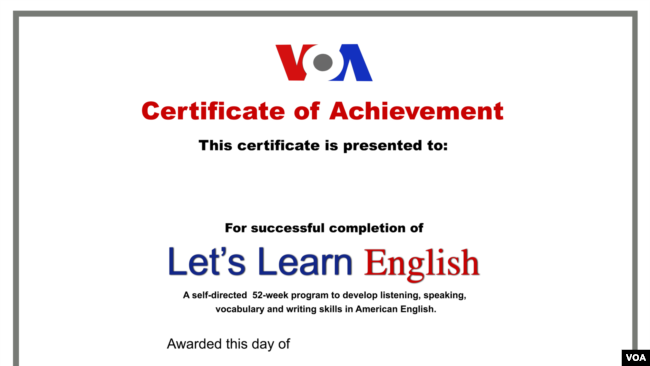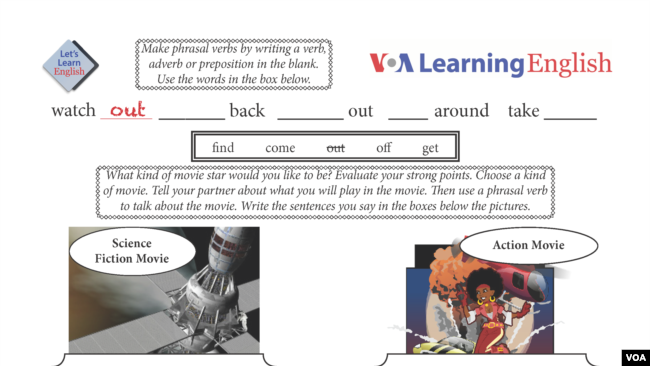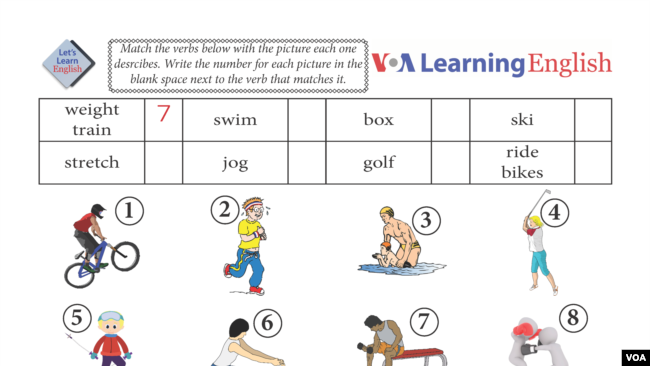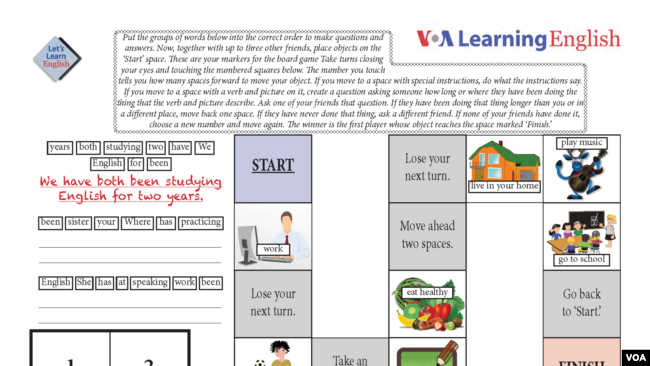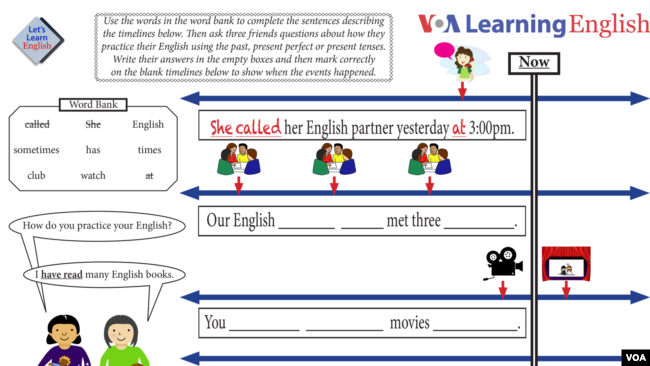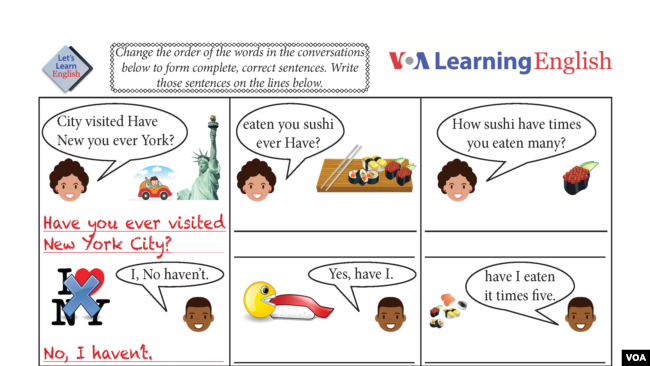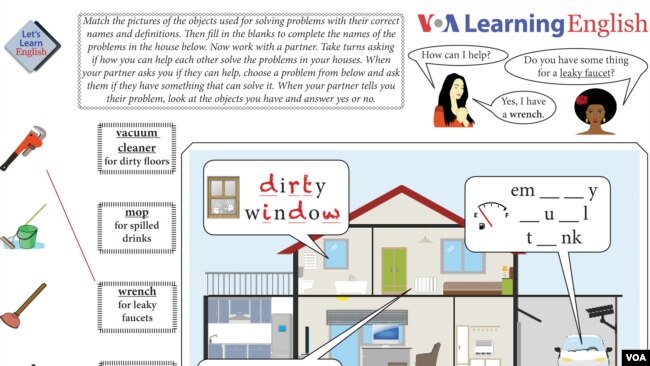Certificate of Completion
Have you been studying with "Let's Learn English" through the past year? We are happy that you have visited regularly to study English with us. As a thank-you, we offer this certificate of completion. Download it and add your own name. Record a short video of yourself speaking English while you are holding the certificate. Then share it with us and other English learners around the world on the VOA Learning English Facebook page. Keep visiting us to review Let's Learn English, and look for the next English course, which is coming in Fall 2017.Summary
Anna is on a talk show to tell us about her new career move - acting as a tree in the movies. She looks back at the chances she took in the past year and plans for the future. Will she stay in Hollywood or come back to live in Washington, D.C.?Speaking
Use this video to learn the new words for this lesson. Then, learn about some new phrasal verbs.
Pronunciation
Use this video to learn about the blend of two words in the phrase "sit down."
Conversation
Anna: Hello, it's Anna! I did it - Washington, D.C. is my home.
Looking back over the past year, I’ve done so many amazing things! I
have met people from all over the world. I’ve made many good friends.
And I have a great job! And I've taken a lot of chances. And now I have
some really big news! Wait for it… and 3, 2, 1…
Kelly: Hello and welcome to “Around the Corner and Across the
Street from the Actor’s Studio!” Many people dream of becoming actors.
But very often, those dreams don’t come true.
Kelly: Well, today we will meet a woman and -- her acting career has really taken off.
In fact, she acted in my play, “The Woods Are Alive!” Oh. She really
brought the part of Tree Number 15 to life! Let’s give a warm welcome to
Anna Matteo!
Anna: Thank you. Thank you so much for having me here.
Kelly: Please, please, sit down. Here, here, let me help you.
Anna: Thanks. Thanks. Wow, it is great to see you again, Director Kelly!
Kelly: It’s great to see you too, Anna. I see you are still wearing
your tree costume. Does this have anything to do with your big news?
Anna: Yes. Yes, it does.
Kelly: Well, Anna, please share that news with us.
Anna: Kelly, I will be acting in three movies.
Kelly: That is amazing! Anna, tell us more.
Anna: Well, the first is a science fiction movie. The second is a romantic comedy. And the third is an action movie.
Kelly: That is so great! Let me guess -- you’re playing a tree in all of them!
Anna: Yes! This is what happened. To prepare for your play, I had to find out what it was like to BE a tree in the world. I had to find out where to eat, where to shop, where to meet people and how to get around the city.
Kelly: Amazing. I think big things are going to happen for you,
Anna. So, tell me, will you be moving to Hollywood for a career in
movies?
Anna: No. I’ll make the movies and then come back. Washington, D.C. is my home.
Kelly: I’m sure your family is very proud.
Anna: Yes, they are. You know, Kelly, not too long ago, I didn’t
feel very good about my life. I had to make a change. So, I took some chances. Sometimes I succeeded. Sometimes I failed. But I will never stop trying.
Kelly: Well, thank you for sharing your news and so much more with us, Anna.
Kelly: Until next time …
Writing
In this lesson, Anna looks back on how she has learned by taking chances over the past year in Washington, D.C. Have you ever taken chances to learn something new or to meet your goal? Tell us about a chance you took and how it helped you to learn or do something important to you . Write to us by email or in the Comments section.Click on the image below to download the Activity Sheet to practice phrasal verbs and evaluating. Please note, our activity sheets now can be completed on the computer.
Learning Strategy
Learning Strategies are the thoughts and actions that help make learning easier or more effective.The learning strategy for this lesson is Evaluate. We use this strategy when we look back at how we have learned and look forward to how we can learn more. In learning a language, we can evaluate how well we are learning and also evaluate how we are using strategies to learn. When we think about which strategies helped us, we know that we should use those strategies again.
In this lesson, Anna looks back at how she took chances in learning to do her job and to live in a big city. She is also looking forward to her new career as an actor. She is taking a chance to go to Hollywood and be in the movies.
Look back at how you have been learning English. What helped you the most?Now look forward. What will help you in the future? Are you taking chances to practice in lots of ways? Write to us in the Comments section or send us an email. Teachers, see the Lesson Plan for more details on teaching this strategy.
